Wednesday, January 14, 2009
I Pledge Allegiance to... Starbucks?
(This topic deserves much, much more elaboration. But this is it for now. Written last December, thus references to Christmas and all that jazz. Will come up with a better analysis soon.)
“The true Filipino is a decolonized Filipino.” – Prof. Renato Constantino (1919-1999)
As I sit here and write, I see my mom dusting the Christmas tree—straightening its bent leaves and assembling the steel stand rusted with ghosts of Christmas past. Maybe it’s the weather, maybe it’s the things that I’ve been learning lately, but for the first time I gaze upon that replica of pine with hesitance. The Christmas tree, like a myriad of things we see everyday and take for granted, is definitely a symbol of our “imported culture.”
It all started with the Spaniards. Ruy de Villalobos, in 1543, gave the name “Felipinas” to the islands they discovered, in honor of their King Philip II. Technically, they didn’t discover it. Our ancestors, the Malays, did.
Later, the country’s name became “Philippines,” and its citizens, “Filipinos.” From the onset, they are both obviously Spanish names. It’s unsettling that even the name we go by today is not our own. A lot of people would say that there isn’t anything wrong with that—and would quote Shakespeare in the process. But it still stands that most countries freed from colonial rule change their names to achieve their own identity. But not the Philippines… Could it be that we didn’t want to let go of our colonial roots after all?
We learned Spanish, Christianity, distinguished indios from filipinos (the early usage of the term “filipino” was to refer to Spaniards born in the Philippines), adapted the patriarchal type of society, and gained a national inferiority complex. Then the Americans came. We learned about democracy, English, white Christmases, pine trees, blonde hair, blue eyes, and the national inferiority complex became very, very, evident.
Even nowadays, it is quite clear from the number of whitening products in the market that Filipinos have a desire to be “Westernized” in more ways than one. Why stop at the psychological when you can make it physical? I don’t think those who use those products actually stop and think why they perceive white as beauty. They just do. And that’s not to mention the advent of plastic surgery. Years of colonialism seems to have seeped through the surface and into the subconscious. Is there a way to get it out of there?
Ours is a country of all things foreign. Of Filipinos who pledge allegiance to Starbucks, CNN, Hollywood, and Barack Obama. Of people who put foreigners on pedestals and are racists towards their own race. Of Filipinos who would give anything not to be.
There is no going around it: We were colonized, we are colonized, and the future doesn’t look very different from the present. Our problems’ roots are run so much deeper than we like to, or care to, think.
Maybe the first step to decolonization is to change our name. We won’t be Filipinos anymore. No longer subjects of King Philip. But that would be the easy part. How about the Filipinos who cannot live without McDonald’s and HBO? Those who worship at Embassy and are addicted to football on ESPN? Would they ever renounce their Westernized ways in the name of nationalism?
In a world where globalization is already the zeitgeist, are we already a little too late? Nationalism is definitely MIA in this country—just look at the number of people in the POEA and immigration offices, at the popular art forms, and at the dominant language. In this day and age, there is no decolonized Filipino. In one way or another we are all still under foreign rule. There is, if Constantino is to be believed, no true Filipino at all.
“The true Filipino is a decolonized Filipino.” – Prof. Renato Constantino (1919-1999)
As I sit here and write, I see my mom dusting the Christmas tree—straightening its bent leaves and assembling the steel stand rusted with ghosts of Christmas past. Maybe it’s the weather, maybe it’s the things that I’ve been learning lately, but for the first time I gaze upon that replica of pine with hesitance. The Christmas tree, like a myriad of things we see everyday and take for granted, is definitely a symbol of our “imported culture.”
It all started with the Spaniards. Ruy de Villalobos, in 1543, gave the name “Felipinas” to the islands they discovered, in honor of their King Philip II. Technically, they didn’t discover it. Our ancestors, the Malays, did.
Later, the country’s name became “Philippines,” and its citizens, “Filipinos.” From the onset, they are both obviously Spanish names. It’s unsettling that even the name we go by today is not our own. A lot of people would say that there isn’t anything wrong with that—and would quote Shakespeare in the process. But it still stands that most countries freed from colonial rule change their names to achieve their own identity. But not the Philippines… Could it be that we didn’t want to let go of our colonial roots after all?
We learned Spanish, Christianity, distinguished indios from filipinos (the early usage of the term “filipino” was to refer to Spaniards born in the Philippines), adapted the patriarchal type of society, and gained a national inferiority complex. Then the Americans came. We learned about democracy, English, white Christmases, pine trees, blonde hair, blue eyes, and the national inferiority complex became very, very, evident.
Even nowadays, it is quite clear from the number of whitening products in the market that Filipinos have a desire to be “Westernized” in more ways than one. Why stop at the psychological when you can make it physical? I don’t think those who use those products actually stop and think why they perceive white as beauty. They just do. And that’s not to mention the advent of plastic surgery. Years of colonialism seems to have seeped through the surface and into the subconscious. Is there a way to get it out of there?
Ours is a country of all things foreign. Of Filipinos who pledge allegiance to Starbucks, CNN, Hollywood, and Barack Obama. Of people who put foreigners on pedestals and are racists towards their own race. Of Filipinos who would give anything not to be.
There is no going around it: We were colonized, we are colonized, and the future doesn’t look very different from the present. Our problems’ roots are run so much deeper than we like to, or care to, think.
Maybe the first step to decolonization is to change our name. We won’t be Filipinos anymore. No longer subjects of King Philip. But that would be the easy part. How about the Filipinos who cannot live without McDonald’s and HBO? Those who worship at Embassy and are addicted to football on ESPN? Would they ever renounce their Westernized ways in the name of nationalism?
In a world where globalization is already the zeitgeist, are we already a little too late? Nationalism is definitely MIA in this country—just look at the number of people in the POEA and immigration offices, at the popular art forms, and at the dominant language. In this day and age, there is no decolonized Filipino. In one way or another we are all still under foreign rule. There is, if Constantino is to be believed, no true Filipino at all.
Subscribe to:
Post Comments (Atom)




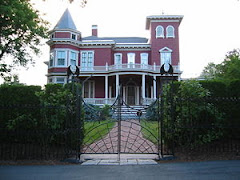
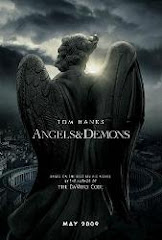
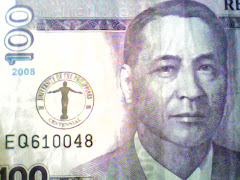

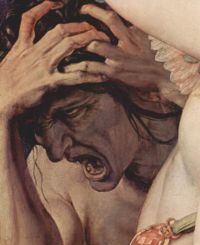

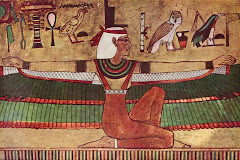
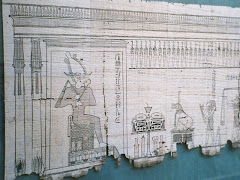


Renato Constantino's 'Veneration Without Understanding' yung pinabasa samin ng rof sa kas1 for the debate. we defended his point. Rizal is an American-sponsored hero. :D anyway, excellent post rosie. :D
ReplyDeleteTama ka diyan. Rizal was American-sponsored. At ayon sa Pol Sci 14, yung mga post-WW1 political parties ng Pilipinas (i.e. Federalista, Nacionalista), two-faced. Pag nakaharap sa masa, they advocate for independence. Pag nakatalikod, hail Americans din ang lakad. Haay. :))
ReplyDelete